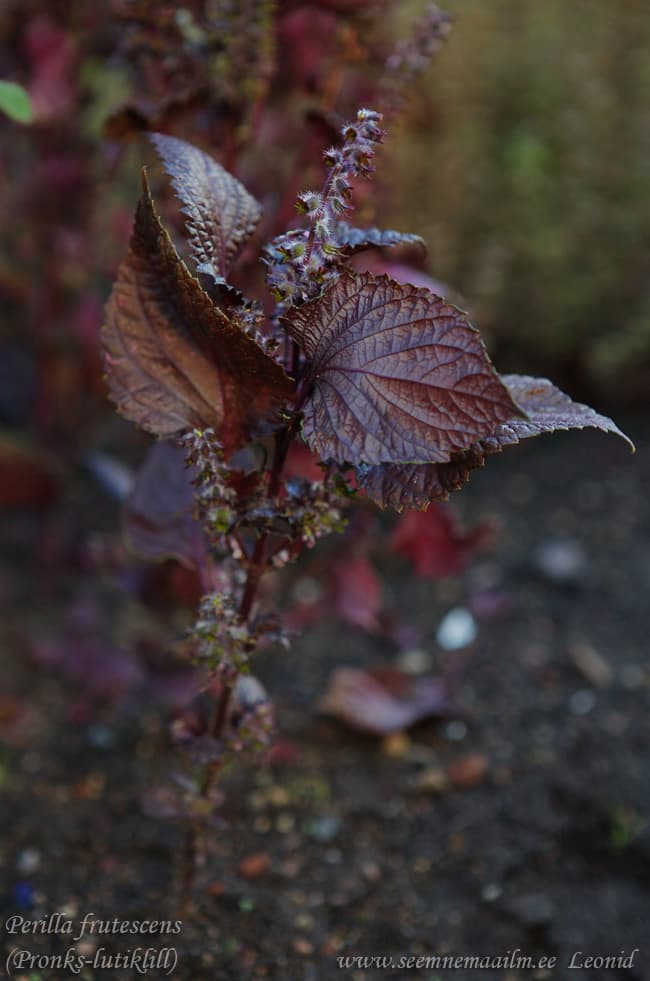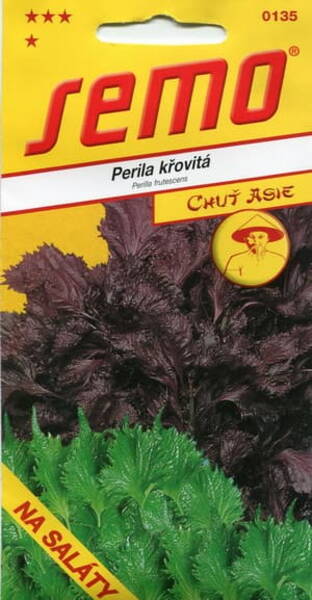Your shopping cart is empty!
Japanese perilla "Green+Red" (Beefsteakplant, Shiso)
Beefsteakplant "Duo mix": "Green and Bronze red" (Japanese perilla, Shiso) - Perilla frutescens L.
An annual spicy-flavoring plant, 40-60 cm high, strongly branched. The leaves are large, double-toothed.
The genus unites about 6 species of annual and perennial herbaceous or semi-shrub plants growing in temperate, subtropical or tropical regions of Asia. In decorative floriculture, 1 type is used.
Grows wild in the Himalayas, China, Japan, Ornamental-deciduous perennial plant used as an annual. In 1 g up to 800 seeds. In culture since the 18th century.
Location: thermophilic and photophilous.
Soil: prefers light, fertile soils.
Care: tolerates haircut well.
Reproduction: perilla is propagated by seeds, which are sown in the second half of April, seedlings appear on the tenth day. Seedlings dive into greenhouses, boxes, or nutrient cubes. To obtain compact bushes, pinch the main shoot. Seedlings are planted in place after the termination of spring frosts, in early June, keeping the distance between plants 20-25 cm.
Usage: widely used in group and curb plantings. Against the background of exotic perilla foliage, any bright flowers of other plants look fantastic!
An annual spicy-flavoring plant, 40-60 cm high, strongly branched. The leaves are large, double-toothed.
The genus unites about 6 species of annual and perennial herbaceous or semi-shrub plants growing in temperate, subtropical or tropical regions of Asia. In decorative floriculture, 1 type is used.
Grows wild in the Himalayas, China, Japan, Ornamental-deciduous perennial plant used as an annual. In 1 g up to 800 seeds. In culture since the 18th century.
Location: thermophilic and photophilous.
Soil: prefers light, fertile soils.
Care: tolerates haircut well.
Reproduction: perilla is propagated by seeds, which are sown in the second half of April, seedlings appear on the tenth day. Seedlings dive into greenhouses, boxes, or nutrient cubes. To obtain compact bushes, pinch the main shoot. Seedlings are planted in place after the termination of spring frosts, in early June, keeping the distance between plants 20-25 cm.
Usage: widely used in group and curb plantings. Against the background of exotic perilla foliage, any bright flowers of other plants look fantastic!

Eng.: Beefsteakplant, Japanese perilla, Shiso. Bot. syn.: Melissa cretica Lour., Melissa maxima Ard., Mentha perilloides Lam., Ocimum frutescens L., Perilla arguta Benth., Perilla avium Dunn, Perilla ocymoides L., Perilla urticaefolia Salisb.
Nutritional value of the culture: contains minerals and essential oils, calcium, potassium and iron. In terms of carotene content, it surpasses carrots.
Tea and decoctions from leaves, young shoots and flowers are used to improve and normalize digestion, as an antitoxic, analgesic, anthelmintic, antiallergic agent.















